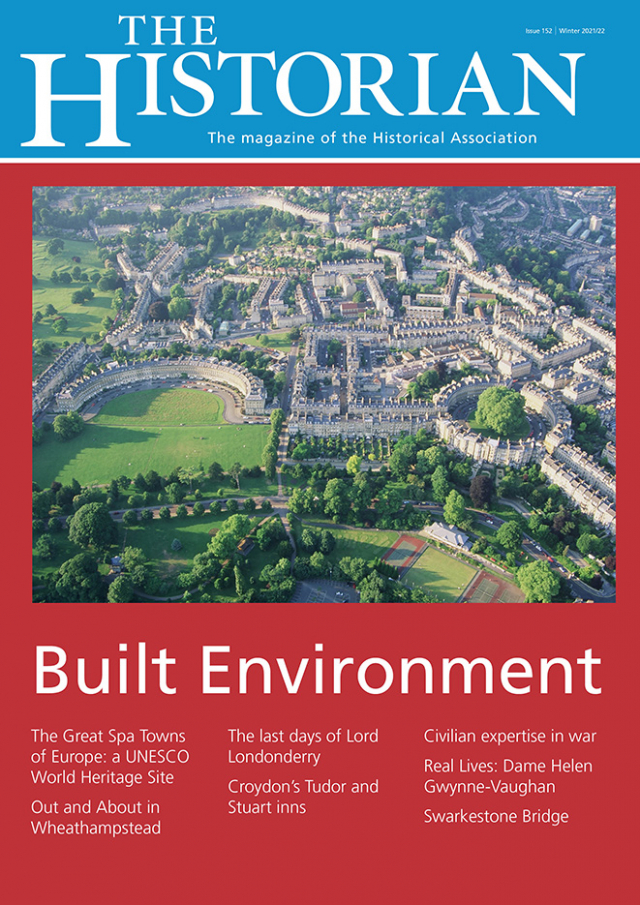The Historian 152: Out now
The magazine of the Historical Association

Editorial: Built Environment
Read The Historian 152: Built environment
From its inception The Historian has been built on the voluntary efforts of both its editorial leadership and also its contributors. This voluntary context has been delivered in as professional a manner as possible. One of our recent strategies has been to identify a proposed overarching theme for each future edition, each with its own lead editor.
For this edition, for example, we announced well in advance that our plan was to focus on the Built Environment. This approach does mean that it is possible for potential writers to offer items to support that theme. On this occasion we attracted the offer of our principal article on the UNESCO celebration of pan-European spa architecture and culture. Having been offered an article on valuable research on Wheathampstead, the writer was persuaded to dovetail her article to fit our proposed theme. Our ‘Favourite Place’ also matches the built environment theme in an unexpected context. However, in the event a further item, which had been expected, did not materialise. This is the reason for the appearance of the article on the Inns of Tudor and Stuart Croydon.
This latter last-minute inclusion reminds me of an aphorism of the late Professor Alfred Cobban, the celebrated historian of modern France in the 1960s, who, on one occasion in his research seminar at Senate House, pronounced that he felt that most research historians ceased to have original ideas before their thirtieth birthdays and then spent the rest of their careers exploring their existing ideas and making them accessible to a wider audience. This remark may have been ‘tongue in cheek’ but it is a reality of life within the Historical Association that, at very short notice amongst our range of supporters, there will be someone who can help us, with an unpublished piece of research, if we suddenly experience an editorial challenge, as we did on this occasion.
At the same time, as we approach our Queen’s Platinum Jubilee, we are always ready to celebrate or commemorate anniversaries. As a result, planned in advance, we are recognising the two hundredth anniversary of the death of Lord Castlereagh. In many ways he was a controversial figure in his own time but his foreign policy, along with that of his contemporary George Canning, helped to create a relatively well-ordered Europe for the ninety-nine years between the Battle of Waterloo and the Great War, a very worthwhile achievement. Alongside that we were fortunate to be offered a very interesting perspective on civilian experience in the Second World War.
I am very grateful to everyone who has contributed articles; to our team of book reviewers; to those who offer us ‘Real Lives’; and to Paula Kitching who continues to guide us with ‘History Abridged’. Alongside this I also wish to offer my personal thanks to Martin Hoare, our Publications Officer, for his professional support to us and, in particular, for his dexterity in continuing to find us such appropriate illustrations for all our editions.
Please reflect on what I have just outlined. We do welcome offers of potential articles, including possible ‘Real Lives’ and ‘Favourite Places’, and we genuinely welcome suggestions about possible future themes.
Do please also read and enjoy all the advertisements about the wider activities of our Historical Association. They are really more than just advertisements: in reality they give us a broad perspective on what the Historical Association offers and achieves.

